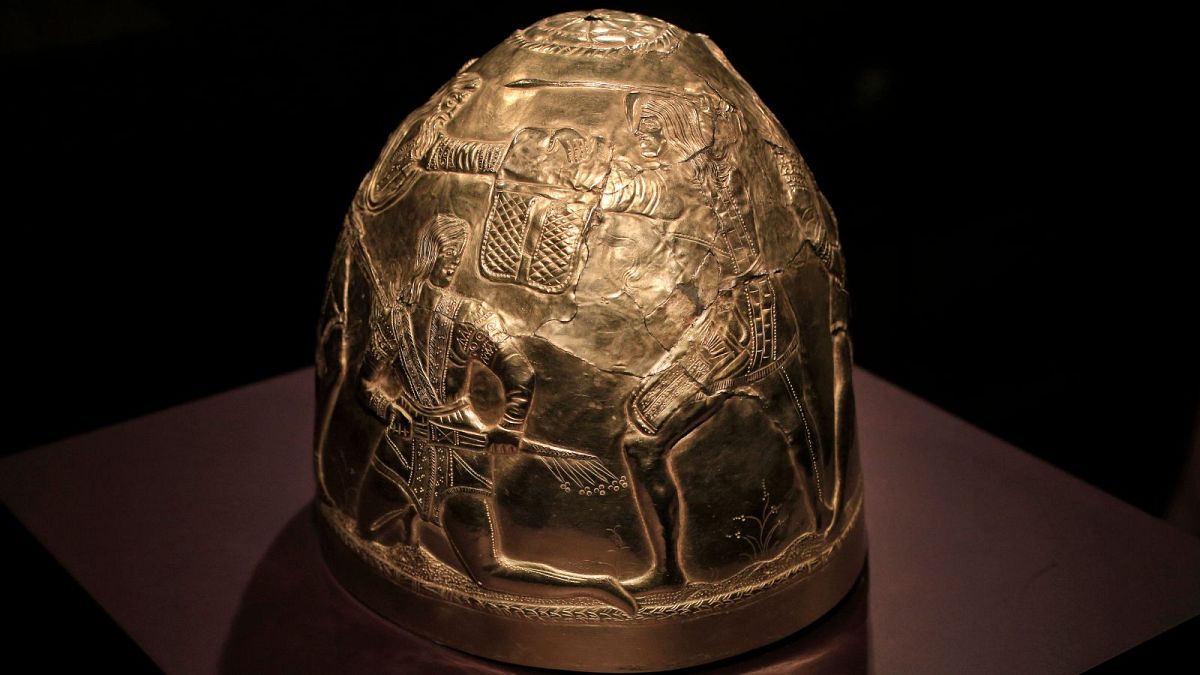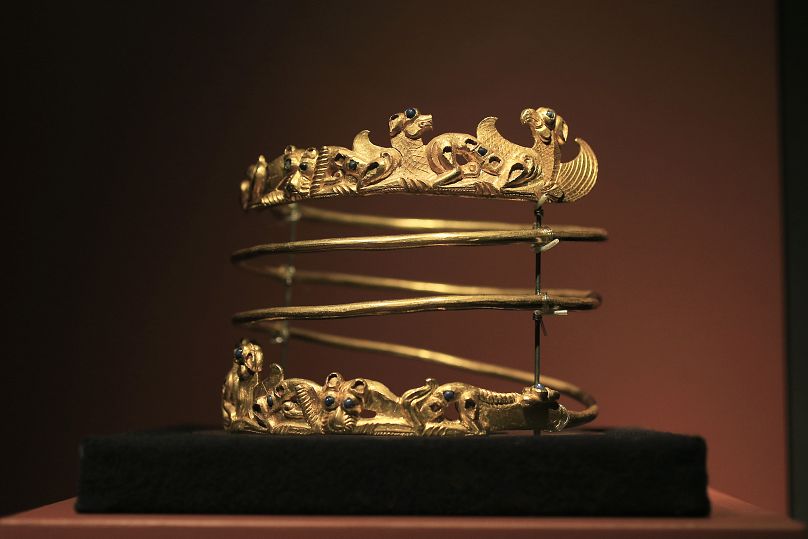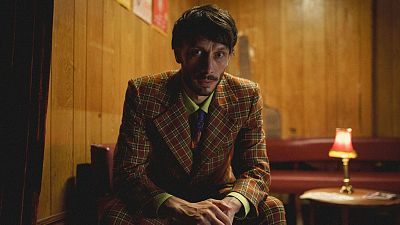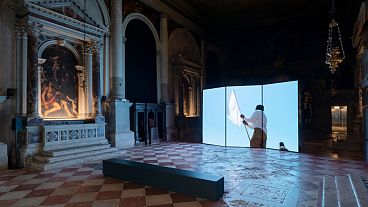The artifacts were on loan to a Dutch museum in 2014 when Russia invaded Crimea, leading to a tug-of-war ownership dispute in which Ukraine fought to keep them.
Stored for years at an Amsterdam museum, several historical treasures from Crimea have finally been returned to Ukraine following a near decade-long legal tug-of-war with Russian-occupied Crimea.
The artifacts include a solid gold Scythian helmet from the 4th century B.C., a spiralling torque from the second century A.D., and a golden neck ornament from the second century A.D. that weighs more than a kilogram.
Originally on loan to the Allard Pierson Museum of Antiquities for a 2014 exhibition titled “Crimea - Gold and Secrets of the Black Sea,” Russia's invasion of Crimea led to a lengthy ownership dispute, in which Ukraine fought to keep the artifacts away from their aggressor.
Both the Ukrainian government in Kyiv and the four Crimean museums that had loaned bronze swords, golden helmets, precious gems and other artifacts to the Dutch museum demanded the objects back.
“This was a special case, in which cultural heritage became a victim of geopolitical developments,” Els van der Plas, director of the Allard Pierson historical museum, said in a statement.
In June, the Dutch Supreme Court ruled that the museum must return the treasures to Ukraine and not to the four museums from which they originally came, upholding a lower court ruling that the artifacts were part of Ukraine’s cultural heritage.
Judges cited the lack of national recognition for the Russia-annexed Autonomous Republic of Crimea.
“Although the museum pieces originate from Crimea and can therefore also be regarded as Crimean heritage, they are part of the cultural heritage of Ukraine,” the Supreme Court ruled.
“We are pleased that clarity has emerged and that they have now been returned,” Van der Plas said.
On 27 November, Kremlin spokesman Dmitry Peskov reaffirmed Russia's view that the trove should be returned to Crimea.
“It belongs to Crimea and it should be there,” Peskov told reporters.




